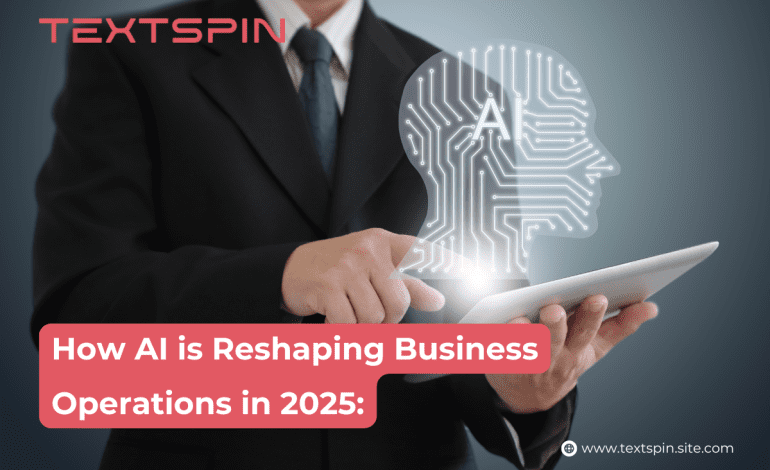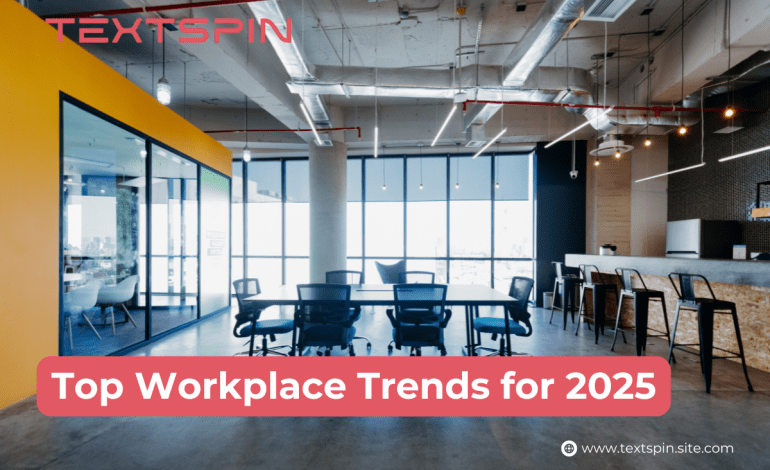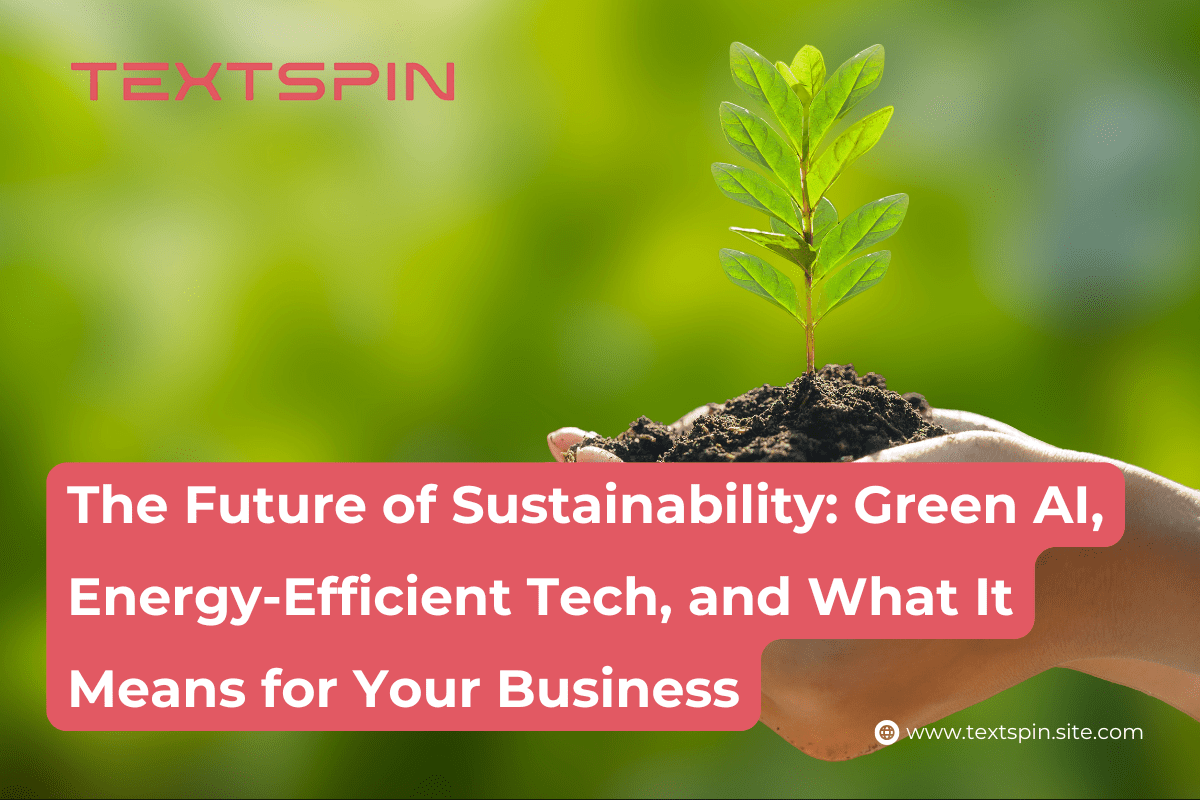
How AI is Reshaping Business Operations in 2025:
Artificial Intelligence (AI) isn’t just a buzzword anymore—it’s the engine driving the next generation of businesses. In 2025, AI has evolved into a transformative force, redefining industries, optimizing workflows, and reshaping how businesses connect with their customers. As someone who’s spent years helping small and medium-sized businesses harness digital tools for growth, I can confidently say that embracing AI is no longer optional—it’s essential.
Let’s dive deep into the key trends shaping AI in business this year, with real-world examples and actionable insights to help your organization thrive.

1. Autonomous AI Agents: Redefining Efficiency
We’ve moved far beyond simple chatbots. Today, autonomous AI agents are handling complex, multi-step tasks that were once the domain of human specialists. From scheduling meetings and managing customer service queries to generating reports and even writing code, these AI systems are learning, adapting, and making decisions with minimal human oversight.
Real-World Example:
Take Salesforce’s Einstein GPT, which combines generative AI with CRM functionalities. It doesn’t just assist customer service teams; it autonomously crafts email responses, prioritizes customer issues, and even predicts future support needs. For businesses, this means fewer mundane tasks and more time for strategic thinking.
Why It Matters:
Autonomous AI agents save businesses time and resources while reducing human error. However, they also spotlight the importance of ethical governance—ensuring these agents operate fairly and transparently. Imagine the PR nightmare of an AI system that unintentionally discriminates against certain customer demographics. Strong oversight mechanisms are non-negotiable.
2. The Rise of AI Governance: Balancing Power with Responsibility
As businesses entrust AI with more responsibilities, ensuring these systems act responsibly is paramount. AI governance platforms are becoming the backbone of ethical and transparent AI use, allowing companies to monitor, audit, and control their systems in real time.
Real-World Example:
IBM’s Watson OpenScale is a prime example. This platform provides real-time insights into how AI models make decisions, identifying potential biases and ensuring compliance with regulatory standards like GDPR and CCPA.
Why It Matters:
In an era where trust drives customer loyalty, businesses that prioritize ethical AI practices will stand out. Governance isn’t just about avoiding lawsuits; it’s about building a brand people can trust. Companies like Apple have leaned heavily into privacy and transparency narratives, demonstrating that good ethics are also good business.
3. Green AI: The Push for Sustainability
AI systems, particularly large language models and neural networks, demand significant computational power, which translates to high energy consumption. In 2025, the focus has shifted to Green AI, emphasizing energy-efficient algorithms and eco-friendly practices.
Real-World Example:
Google’s DeepMind developed an AI system to optimize energy use in their data centers, achieving a 30% reduction in power usage for cooling. Companies like Microsoft are following suit, committing to carbon-negative AI operations.
Why It Matters:
Consumers care deeply about sustainability. Businesses that integrate Green AI can lower operational costs while aligning with eco-conscious values. For instance, Patagonia’s environmental advocacy resonates with its customers, demonstrating how values-driven practices can amplify a brand’s impact.
4. Hyper-Personalized Customer Experiences
AI is revolutionizing customer interactions through hyper-personalization. By analyzing vast amounts of real-time data, AI can anticipate customer needs, predict preferences, and deliver tailored recommendations.
Real-World Example:
E-commerce giant Shopify employs AI to recommend products based on user behavior, boosting both average order values and customer satisfaction. Similarly, Netflix’s recommendation algorithm, fine-tuned with AI, ensures that 80% of viewed content comes from personalized suggestions.
Why It Matters:
Hyper-personalization fosters deeper customer loyalty and drives revenue. In one of my recent projects, a small boutique clothing store saw a 25% increase in sales after implementing AI-driven product recommendations on its website. The key takeaway? Make your customers feel seen and understood.
5. Smarter Decision-Making with AI Insights
Data is abundant, but actionable insights are rare. AI-powered analytics tools are transforming decision-making by turning complex datasets into clear, actionable strategies. Whether it’s financial forecasting, inventory management, or market trend analysis, AI enables businesses to act quickly and accurately.
Real-World Example:
Companies like Tableau and Microsoft Power BI have integrated AI to provide predictive analytics. For instance, a retail chain using AI-driven insights can anticipate stock shortages during peak seasons, ensuring shelves are always full.
Why It Matters:
The competitive edge lies in agility. Businesses that can adapt quickly to market changes based on AI-driven insights will outpace their slower competitors. Think about how Amazon adjusts its logistics in real time to meet fluctuating demands—that’s the power of smarter decision-making.
6. The Democratization of AI Tools
AI is no longer just for tech giants. The rise of affordable and accessible AI platforms means small businesses can now leverage these tools without needing in-house tech teams.
Real-World Example:
Platforms like Canva and Jasper AI empower smaller businesses to create professional-grade marketing materials and content in minutes, without needing deep technical expertise.
Why It Matters:
Democratized AI levels the playing field, allowing small and medium businesses to compete with larger enterprises. It’s about amplifying creativity and efficiency, not replacing human ingenuity.
7. AI in Cybersecurity: Staying One Step Ahead
As businesses grow more digital, cybersecurity threats become more sophisticated. AI is now at the forefront of identifying vulnerabilities and neutralizing threats before they escalate.
Real-World Example:
Darktrace, an AI-driven cybersecurity company, uses machine learning to detect and respond to cyber threats in real time. For businesses handling sensitive customer data, this kind of proactive defense is invaluable.
Why It Matters:
Data breaches can devastate a business’s reputation. With AI as a guard dog, companies can protect themselves and their customers, building trust and confidence in an increasingly digital landscape.
The Path Forward: Embracing AI with Purpose
AI isn’t just a tool; it’s a mindset shift. It’s about rethinking how we approach problems, serve customers, and drive growth. Businesses that succeed in 2025 will do so by embracing AI strategically and responsibly.
What You Should Focus On:
- Start Small but Think Big: Identify one area where AI can make an immediate impact, then scale as you see results.
- Prioritize Governance: Don’t sacrifice ethics for speed. Build systems that are transparent and fair.
- Stay Adaptable: AI is evolving rapidly. Continuous learning and flexibility will keep your business ahead of the curve.
Final Thoughts
AI isn’t just reshaping business—it’s reshaping society. From autonomous systems to sustainable practices and hyper-personalized experiences, AI offers endless opportunities to innovate and grow. The key is to embrace it thoughtfully, with an eye on both the present and the future.
2025 isn’t about fearing the unknown; it’s about harnessing it. So, whether you’re running a local coffee shop or a fast-growing e-commerce brand, ask yourself: How can AI help me do what I do better, smarter, and more meaningfully?
Let’s seize the opportunities ahead, one intelligent decision at a time.
– Ben Bianchi





